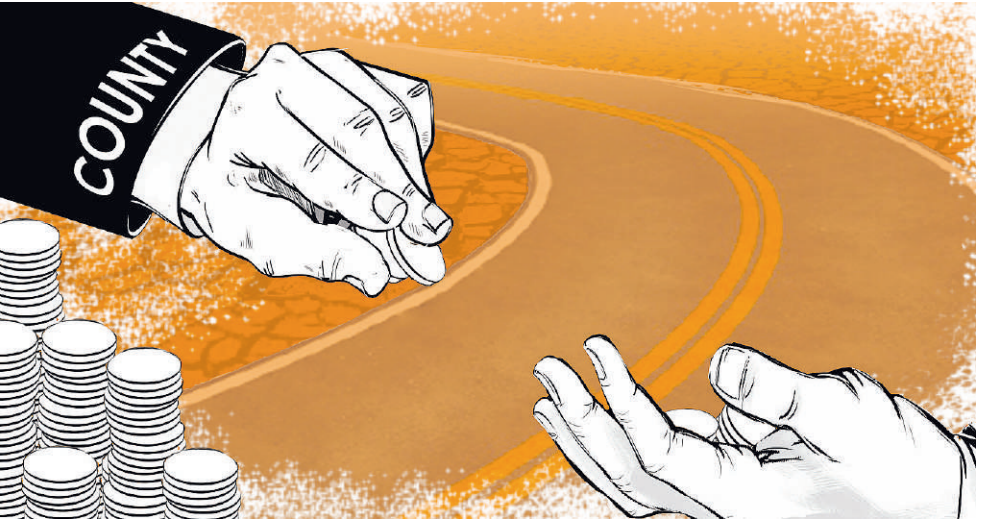

President William Ruto’s recent appeal to MPs and governors to allow his administration to centrally manage road maintenance levy funds is, in many ways, a telling moment in our national journey with devolution.
At face value, the call appears rooted in the desire for efficiency. But beneath it lies a broader question—are we willing to trust the very governance system we created through our 2010 Constitution? Are we willing to trust counties to lead, as was intended, in addressing local development challenges?
Let us be clear: the management of county roads is already a devolved function. This is not a matter for political bargaining but a constitutional reality. The Gazette notice published by the Intergovernmental Relations Technical Committee on December 16 last year reaffirmed the functional assignment between national and county governments. Road maintenance at the local level is squarely under county governments. The constitution has no ambiguity on this.
The road maintenance levy is collected from all Kenyans, and its utilisation must be guided by proximity to need—not proximity to power.
In Mombasa, for instance, residents of Nyali have for two years endured the consequences of poor drainage on Links Road, a route managed by the Kenya Urban Roads Authority.
Each rainy season, floodwaters overrun homes and businesses. The county has made repeated proposals to address the situation. Yet, because it is not a national bureaucratic priority, action remains elusive.
This is the problem. When funding and decision-making sit far from the ground, so too does urgency. Counties know where the shoe pinches.
We live with these realities. We receive the distress calls. We face our residents, not in distant boardrooms, but in marketplaces and town halls. We understand local priorities better than anyone else because we are closest to the people.
The road levy, therefore, should be administered by counties as a conditional grant under the existing Public Finance Management framework. This is legally possible, constitutionally sound and practically urgent. The oversight structures already exist. County assemblies interrogate budgets line by line. The Senate supervises public spending across counties. The Office of the Auditor-General audits every shilling. This is a robust framework—let us use it.
Shifting these funds to counties will also free our MPs to focus on their constitutional mandates of representation, legislation and oversight, rather than slipping into roles better suited for implementation agencies. It will allow the national government to invest its energy and resources on infrastructure of national significance—highways, ports, logistics corridors—while counties focus on feeder roads, markets and essential linkages that drive daily commerce and community access.
The idea that only central management guarantees accountability is a narrative that undermines the maturity of our devolved system. It ignores the significant progress counties have made in project execution, public participation and financial discipline—despite persistent underfunding.
More importantly, insisting on recentralising road levy funds risks setting a dangerous precedent. If we claw back devolved functions every time a challenge arises, we do not strengthen governance—we erode trust. We must instead work toward building capacity, strengthening intergovernmental collaboration and holding each level of government accountable for its mandate.
President Ruto has, on many occasions, spoken about his desire to leave a transformative legacy. There can be no greater legacy than deepening devolution. It is the most powerful engine for inclusive growth, dignity and equity in our republic. In the spirit of cooperative governance, let us walk this path together.
Let us not retreat from devolution. Let us embrace its full potential—not in rhetoric, but in resourcing. And if ever there was a test of that commitment, it is now.
The writer is the Mombasa governor








